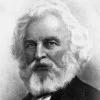He that has never known adversity is but half acquainted with others, or with himself. Constant success shows us but one side of the world. For, as it surrounds us with friends, who will tell us only our merits, so it silences those enemies from whom alone we can learn our defects.
Charles Caleb "C. C." Colton (1780-1832) English cleric, writer, aphorist
Lacon: Or, Many Things in Few Words, Vol. 1, § 513 (1820)
(Source)
Quotations about:
enemies
Note not all quotations have been tagged, so Search may find additional quotes on this topic.
What wouldest thou have me follow? what my enemies think prudent, or what I myself think to be so?
[Que veux-tu que je suive, la prudence de mes ennemis, ou la mienne?]
Charles-Lewis de Secondat, Baron de Montesquieu (1689-1755) French political philosopher
Persian Letters [Lettres Persanes], Letter 8, Usbek to Rustan (1721) [tr. Floyd (1762)]
(Source)
(Source (French)). Alternate translations:What wouldst thou have me pursue; the Prudence of my Enemies, or my own?
[tr. Ozell (1736)]Which would you have me obey -- the petty maxims that guide my enemies, or the dictates of my own free soul?
[tr. Davidson (1891)]Which would you have me accept as a guide, -- the foresight of my enemies or my own?
[tr.https://archive.org/details/persianletters00degoog/page/n52/mode/2up?q=%22accept+as+a+guide%22">Betts (1897)]Would you have me follow my own counsel or that of my enemies?
[tr. Healy (1964)]Ought I to heed my enemies' prudent counsels or my own?
[tr. Mauldon (2008)]Which would you have me follow, Rustan, my own counsel, or that of my enemies?
[tr. MacKenzie (2014)]
AMBITION, n. An overmastering desire to be vilified by enemies while living and made ridiculous by friends when dead.
Ambrose Bierce (1842-1914?) American writer and journalist
“Ambition,” The Cynic’s Word Book (1906)
(Source)
Included in The Devil's Dictionary (1911).
Originally published in the "Devil's Dictionary" column in the San Francisco Wasp, where the entry read:An overmastering desire to be abused by the newspapers during life, and have an epitaph by Hector A. Stuart after death.
Bierce frequently mocked the verse of Stuart, a San Francisco poet.
If fifty bands of men surrounded us
and every sword sang for your blood,
you could make off still with their cows and sheep.[εἴ περ πεντήκοντα λόχοι μερόπων ἀνθρώπων
νῶϊ περισταῖεν, κτεῖναι μεμαῶτες Ἄρηϊ,
καί κεν τῶν ἐλάσαιο βόας καὶ ἴφια μῆλα.]Homer (fl. 7th-8th C. BC) Greek author
The Odyssey [Ὀδύσσεια], Book 20, l. 49ff (20.49) [Athena to Odysseus] (c. 700 BC) [tr. Fitzgerald (1961)]
(Source (Greek)). Alternate translations:If there were
Of divers-languag’d men an army here
Of fifty companies, all driving hence
Thy sheep and oxen, and with violence
Offer’d to charge us, and besiege us round,
Thou shouldst their prey reprise, and them confound.
[tr. Chapman (1616)]Though fifty bands of men should us oppose,
You should their herds of cattle drive away.
[tr. Hobbes (1675), l. 37ff]Were we hemm’d around
By fifty troops of shouting warriors bent
To slay thee, thou should’st yet securely drive
The flocks away and cattle of them all.
[tr. Cowper (1792), l. 54ff]Though fifty bands stood threatening thee and me,
All breathing slaughter, their fat kine and sheep
Thou shouldst drive off, and take their wealth in fee.
[tr. Worsley (1861), st. 6]If fifty troops of men, as good as thou
Surround us twain, and strive to slay in battle,
Of their fat kine and sheep should'st thou be captor!
[tr. Bigge-Wither (1869)]Though fifty bands of mortals that in speech
Articulate use their tongues around us rose
In conflict fierce to kill us both intent,
Still should'st though prove the man that all those beeves
And fatten'd flocks should to thye homestall drive.
[tr. Musgrave (1869), l. 70ff]Even should fifty companies of mortal men compass us about eager to slay us in battle, even their kine shouldst thou drive off and their brave flocks.
[tr. Butcher/Lang (1879)]If fifty bands of menfolk, word-speaking wights that are,
Stood round about us, eager for our slaying in the war,
Yet their kine shouldst though be driving and their goodly fatted sheep.
[tr. Morris (1887)]Should fifty troops of mortal men stand round about us, eager in the fight to slay, you still might drive them away from their oxen and sturdy sheep.
[tr. Palmer (1891)]Even though there were fifty bands of men surrounding us and eager to kill us, you should take all their sheep and cattle, and drive them away with you.
[tr. Butler (1898)]If fifty troops of mortal men should stand about us, eager to slay us in battle, even their cattle and goodly sheep shouldest thou drive off.
[tr. Murray (1919)]Though fifty troops of humans hemmed us round, all mad to kill outright, yet shuld you win through to lift their flocks and herds.
[tr. Lawrence (1932)]If you and I were surrounded by fifty companies of men-at-arms, all thirsting for your blood, you could drive away their cows and sheep beneath their very noses.
[tr. Rieu (1946)]Even though there were fifty battalions of mortal people
standing around us, furious to kill in the spirit of battle,
even so you could drive away their cattle and fat sheep.
[tr. Lattimore (1965)]Even if fifty bands of mortal fighters
closed around us, hot to kill us off in battle,
still you could drive away their herds and sleek flocks!
[tr. Fagles (1996)]Even if there were fifty squadrons of armed men
All around us, doing their mortal best to kill us,
You would still be able to run off with their cattle!
[tr. Lombardo (2000)]If in fact there were fifty battalions of men who are mortal
Standing around us, eagerly striving to kill us in battle,
even from them you would drive their cattle away and their fat sheep.
[tr. Merrill (2002)]You and I could be surrounded by fifty companies of men-at-arms, all thirsting for our blood, but you would still drive away their cows and sheep.
[tr. DCH Rieu (2002)]If we were ambushed, surrounded by not one but fifty gangs of men who hoped to murder us -- you would escape, and even poach their sheep and cows.
[tr. Wilson (2017)]If there were fifty troops of mortal men in ambush all around us, firmly determined to kill us, nevertheless even then you'd drive off their cattle and fattened sheep.
[tr. Green (2018)]Even were fifty troops around us, to kill us, you'd end by driving off their cattle!
[tr. Green (2018), summary]If there were fifty groups
of other men standing here around us,
intent on slaughter, even so, I say,
you’d still drive off their cattle and fine sheep.
[tr. Johnston (2019), l. 55ff]
We injure ourselves more than our enemies, by indulging hatred towards them.
Marguerite Gardiner, Countess of Blessington (1789-1849) Irish novelist [Lady Blessington, b. Margaret Power]
Desultory Thoughts and Reflections (1839)
(Source)
Violence as a way of achieving racial justice is both impractical and immoral. It is impractical because it is a descending spiral ending in destruction for all. The old law of an eye for an eye leaves everybody blind. It is immoral because it seeks to humiliate the opponent rather than win his understanding; it seeks to annihilate rather than to convert. Violence is immoral because it thrives on hatred rather than love. It destroys community and makes brotherhood impossible. It leaves society in monologue rather than dialogue. Violence ends by defeating itself. It creates bitterness in the survivors and brutality in the destroyers.
Martin Luther King, Jr. (1929-1968) American clergyman, civil rights leader, social activist, preacher
Stride Toward Freedom, ch. 11 “Where Do We Go from Here?” (1958)
(Source)
If you rejoice in revenge, torture, and war […] you cannot say you’re a follower of the guy who explicitly said “love your enemies” and “do good to those who hate you”. The next line isn’t, “And if that doesn’t work, send a titanium-fanged dog to rip his nuts off”. Jesus lays on that hippie stuff pretty thick! He has lines like, “do not repay evil with evil”, and “do not take revenge on someone who wrongs you.” Really! It’s in that book you hold up when you scream at gay people.
There is a reason you separate military and the police. One fights the enemies of the state, the other serves and protects the people. When the military becomes both, then the enemies of the state tend to become the people.
We have no eternal allies, and we have no perpetual enemies. Our interests are eternal and perpetual, and these interests it is our duty to follow.
No matter how unpredictable the future may be, we don’t win freedom through security systems, cryptography, interrogations and spot searches. We win freedom by having the courage and the conviction to live every day freely and to act as a free society, no matter how great the threats are on the horizon.
Institutions like to continue doing what they have been doing, always on a grander scale, if possible. When old enemies disappear, mellow, or turn into allies, as frequently happens in international relations, new enemies must be found and new threats must be discovered. The failure to replenish the supply of enemies is the supreme threat facing any national security bureaucracy.
Peace and friendship with all mankind is our wisest policy, and I wish we may be permitted to pursue it. But the temper and folly of our enemies may not leave this in our choice.
Thomas Jefferson (1743-1826) American political philosopher, polymath, statesman, US President (1801-09)
Letter (1786-05-06) to C. W. F. Dumas
(Source)
But this truth from long experience I assert, that he who has the most friends and the fewest enemies, is the strongest; will rise the highest with the least envy; and fall, if he does fall, the gentlest, aud the most pitied.
Lord Chesterfield (1694-1773) English statesman, wit [Philip Dormer Stanhope]
Letter to his son, #293 (11 Nov 1752)
(Source)
The best thing to give to your enemy is forgiveness; to an opponent, tolerance; to a friend, your heart; to your child, a good example; to a father, deference; to your mother, conduct that will make her proud of you; to yourself, respect; to all men, charity.
Clara Lucas Balfour (1808-1878) English novelist, lecturer, temperance campaigner
Sunbeams for All Seasons: Counsels, Cautions, and Precepts (1861 ed.)
There are two modes of establishing our reputation; to be praised by honest men, and to be abused by rogues. It is best, however, to secure the former, because it will be invariably accompanied by the latter.
Charles Caleb "C. C." Colton (1780-1832) English cleric, writer, aphorist
Lacon: Or, Many Things in Few Words, Vol. 1, § 218 (1820)
(Source)
The lack of objectivity, as far as foreign nations are concerned, is notorious. From one day to another, another nation is made out to be utterly depraved and fiendish, while one’s own nation stands for everything that is good and noble. Every action of the enemy is judged by one standard — every action of oneself by another. Even good deeds by the enemy are considered a sign of particular devilishness, meant to deceive us and the world, while our bad deeds are necessary and justified by our noble goals, which they serve.
Erich Fromm (1900-1980) American psychoanalyst and social philosopher
The Art of Loving, ch. 5 (1956)
(Source)
If we could read the secret history of our enemies, we should find in each man’s life sorrow and suffering enough to disarm all hostility.
Henry Wadsworth Longfellow (1807-1882) American poet
“Table Talk,” Drift-Wood (1857)
(Source)
More discussion of this quotation here: If We Could Read the Secret History of Our Enemies, We Should Find in Each Man’s Life Sorrow and Suffering Enough To Disarm All Hostility – Quote Investigator.
Hastur was paranoid, which was simply a sensible and well-adjusted reaction to living in Hell, where they really were all out to get you.
Terry Pratchett (1948-2015) English author
Good Omens, 6. “Saturday” (1990) [with Neil Gaiman]
(Source)



















